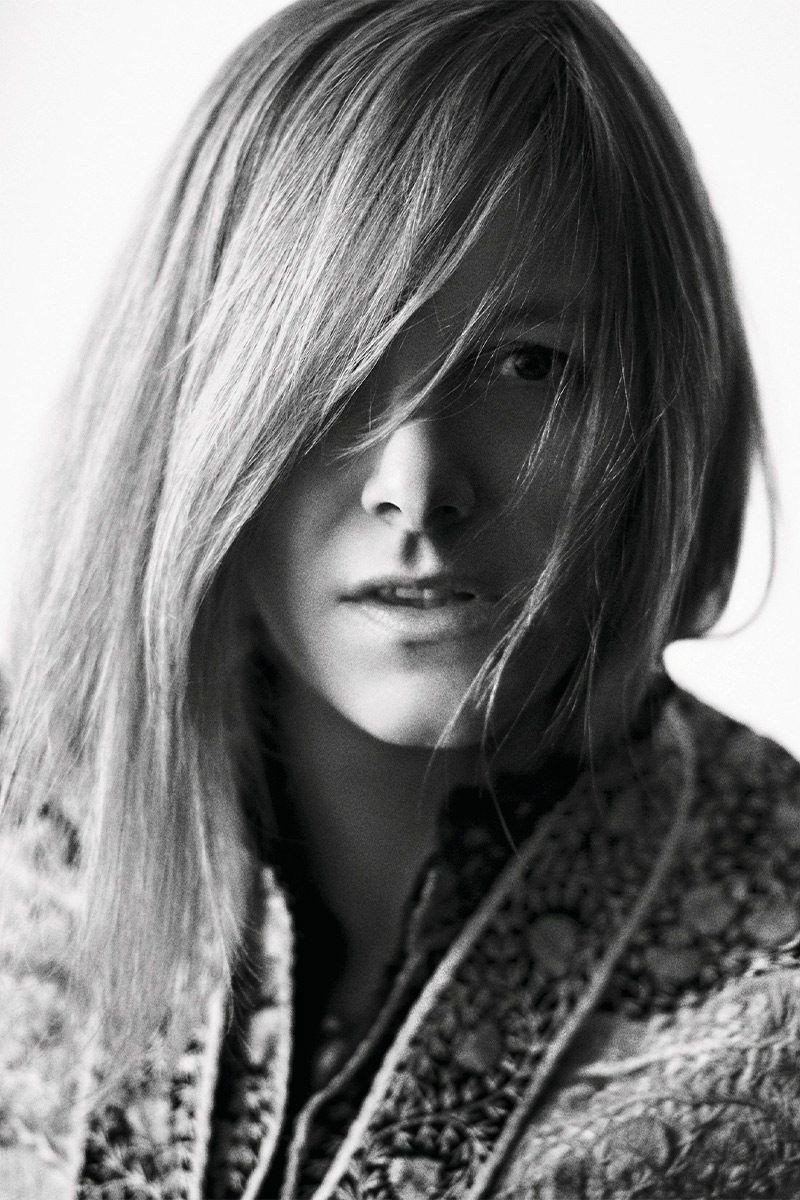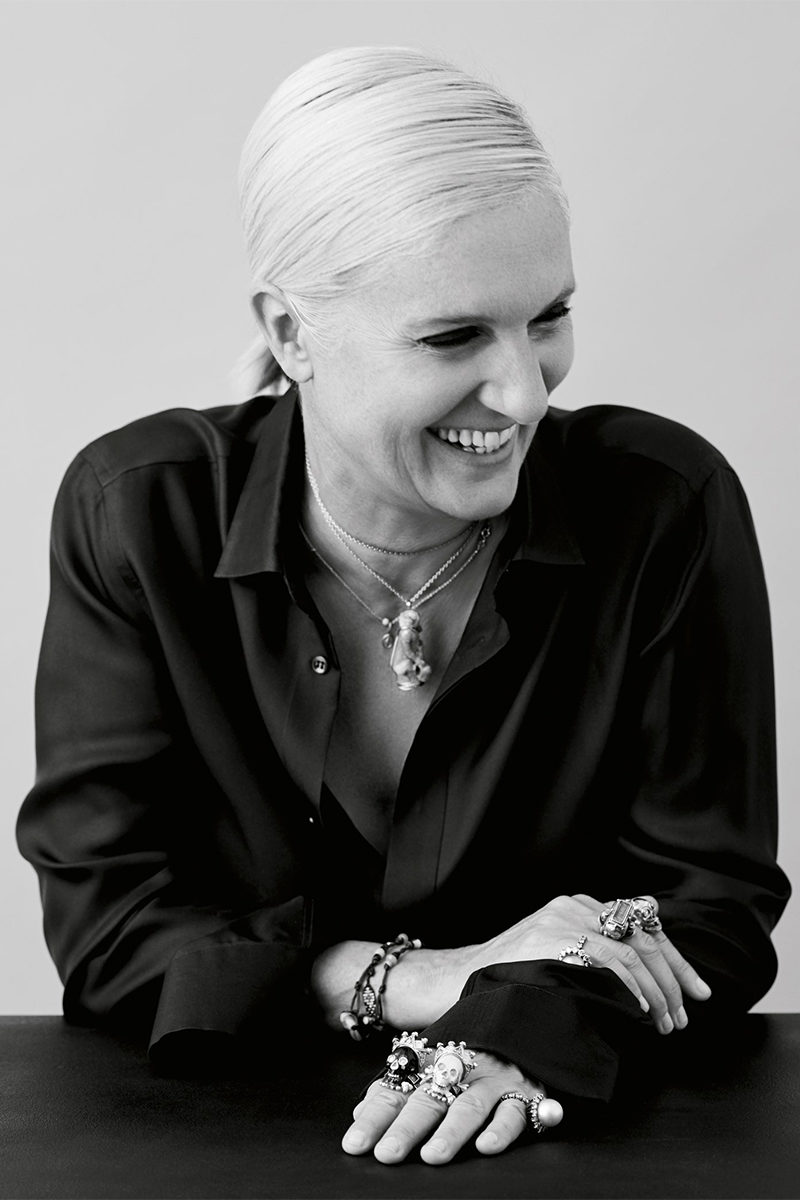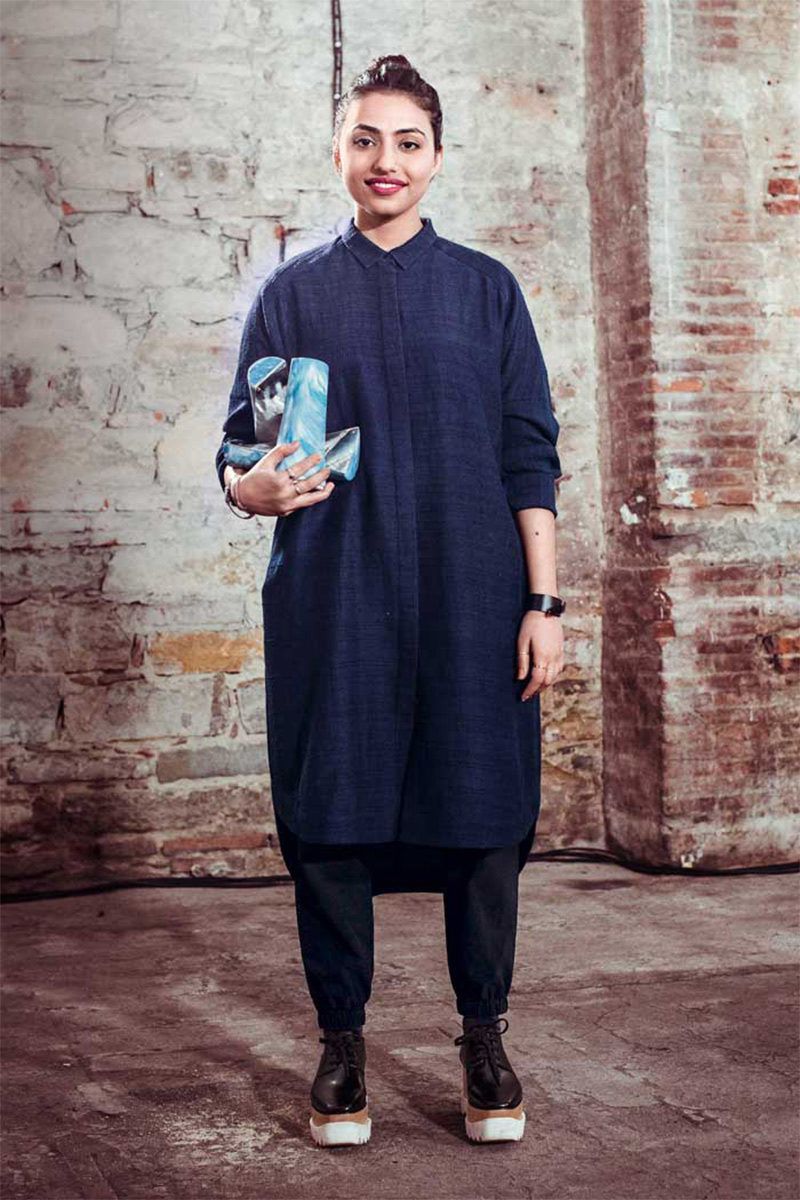
1 / 7
Sarah Burton, May 2019
“Being at McQueen, it’s always been about empowering women, it’s always been about a woman who’s strong. The Alexander McQueen women is very much a woman who is strong for herself. I really believe that a woman shouldn’t just have to dress like a man to feel strong. That’s why I really love to play with tailoring mixed with a woman’s dress. On Vittoria [Ceretti] there was a jacket with an exploded rose at the hem. It has a masculine tailoring at the top and then a very feminine rose. I want to show how important it is to be a woman still. You don’t have to take away your emotions and your feelings—it’s okay to feel vulnerable and have imperfections. I think that idea of strength and femininity are really important. I always like to say that in a way it’s almost like soft armour for women, so that you feel empowered, but not overwhelmed.”

2 / 7
Diane Von Furstenberg, August 2020
On her life at 73 : “In 1974, I created the wrap dress. Well, people say I created it, but the truth is the wrap dress created me. I was 26 years old, and it made me feel so confident, and the more confident I was, the more confidence I could sell. The dress became a symbol of women’s liberation.”
On changing women’s wardrobe: “I’d like to think that my contribution to a woman’s wardrobe—and therefore my contribution to fashion—is to be your best friend when you open your closet. Women will be drawn to things that are timeless, things that have purpose. Something you will never throw away because it’s a good friend. That, more than ever, is going to be the driving force.”

3 / 7
Anita Dongre, November 2020
“We were a large joint family of around 30-40 cousins, most of whom would get married by the age of 18-19. Because of our social conditioning, my parents were surprised that I wanted to go to college and take up a job. Neighbours used to mock my father that he couldn’t earn enough which is why his daughter was going for a job. I have been through all of this societal stigma, and I know what goes into making people understanding why I deserved to work. Eventually, my father gave me my first loan for starting my own business, and I am proud to say that I was able to return it in six months. Year after year, I have always wished for the same thing: that every woman in India gets to lead life on her own terms. This change is going to happen and very soon. I believe that you can either observe it happening from the sidelines or become a part of it. Today, when I visit women from the villages that we support, I can see the pride that comes in them from financial independence. So many women tell me that they now don’t need to ask anyone for money and that their men treat them with respect as well. Women empowerment is the only way to usher in this change.”

4 / 7
Maria Grazia Chiuri, November 2018
On her mother’s influence on her idea of feminism: “She was very independent. My grandmother was, too; my grandfather died in the war and she had to bring up four kids on her own. She decided not to re-marry because she wanted to maintain her independence. If you grow up in a family like that, it’s impossible to not believe in women having the same opportunities as men. I remember my mother liked to be independent from my father and he was very open-minded. Today, I think we have forgotten to respect each other. I am worried about teaching my son to respect women, to have a dialogue, to believe in humanity.”
On the T-shirt from her first collection at Dior, being an exclamation mark: “When I arrived, everybody spoke to me about femininity and I thought, but what does it mean to be feminine today? What does it mean to be a woman today? We started to think of a T-shirt because it is a way to speak to everybody. And also because this was a message, not just clothes. Later, I was at the Brooklyn Museum in New York and saw a girl of about 11 or 12 wearing a fake version of that T-shirt. I was so thrilled. She had no idea that it was made for Dior, or who I was—she bought it for the message.
I was 52, I left my family in Rome. That’s why I thought we had to speak about how women want to be today. I wrote to Chimamanda [Ngozi Adichie] because I was obsessed with her book and her talk. I read We Should All Be Feminists with my daughter. I did that because I think the world is full of stereotypes. We are told that the geniuses are all men because in school you study only Caravaggio, Raphael…We don’t study women artists. They aren’t in the book. I want the collections to have something for every woman to find and mix in a personal way.”

5 / 7
Payal Khandwala, March 2017
“Women. I know so many women and meet so many more, from all walks of life, all shapes, all sizes, strong women with such distinct personalities, from different demographics. They inspire me to design clothes that are inclusive, that are not about fashion which is so fleeting, but are an extension of who they are.”

6 / 7
Ruchika Sachdeva, March 2021
“Bodice evolves with me—the more confident I feel, the bolder my clothes become.” And this is exactly the kind of woman that the brand was made for.”

7 / 7
Gabriela Hearst, November 2021
“You have to push; you have to get out of your comfort zone; not listen to ‘No’; you have to implement your knowledge. The bigger your platform, the more responsibility and duty you have and this is what I’m dedicating my life to.”
This story originally appeared in Vogue.in.





